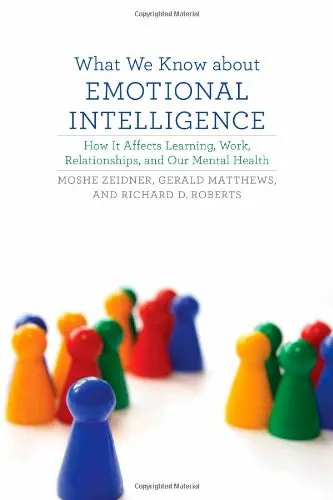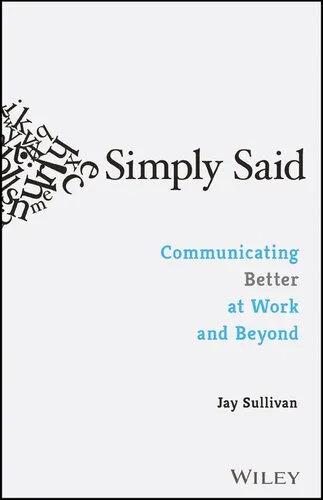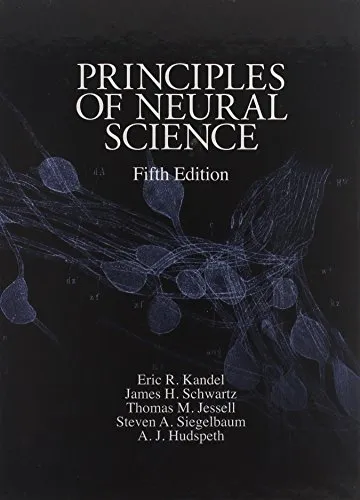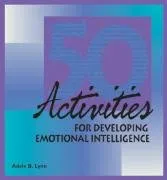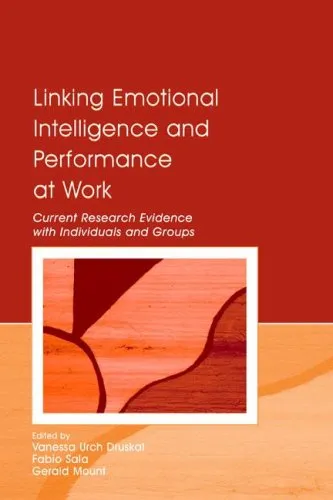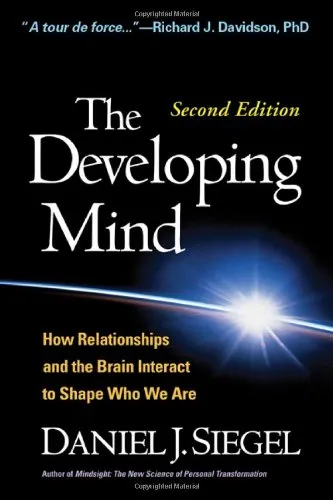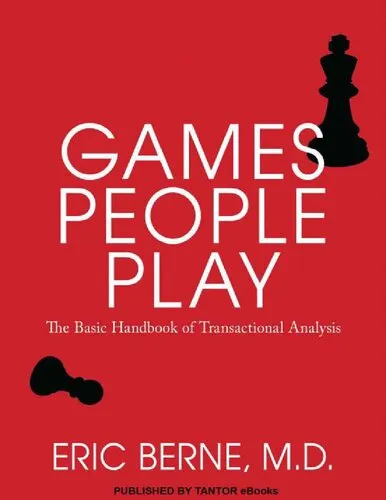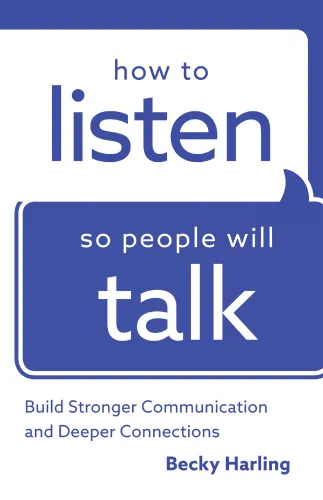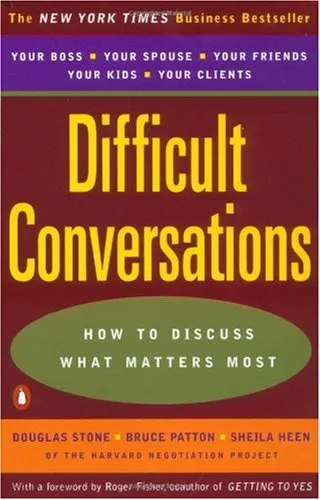What We Know about Emotional Intelligence: How It Affects Learning, Work, Relationships, and Our Mental Health
4.5
Reviews from our users

You Can Ask your questions from this book's AI after Login
Each download or ask from book AI costs 2 points. To earn more free points, please visit the Points Guide Page and complete some valuable actions.Related Refrences:
Introduction to "What We Know about Emotional Intelligence: How It Affects Learning, Work, Relationships, and Our Mental Health"
Emotional Intelligence (EI) has emerged as one of the most influential concepts in psychology, neuroscience, and human development over the last few decades. In "What We Know about Emotional Intelligence: How It Affects Learning, Work, Relationships, and Our Mental Health", we explore this ever-evolving field with precision, depth, and a critical eye to distinguish between evidence-based findings and popular misconceptions.
Our goal with this book is to provide a comprehensive understanding of what emotional intelligence truly entails, how it impacts different facets of life, and what recent scientific research reveals about the topic. As authors, we demystify emotional intelligence, moving beyond the overhyped claims and focusing on its measured significance in learning, work, social relationships, and mental well-being.
This book serves as a cornerstone reference for anyone seeking to elevate their knowledge about emotional intelligence—whether educators, professionals, students, or anyone interested in self-improvement and interpersonal growth. By grounding our discussion in empirical science, we aim to go beyond basic definitions and fads to address the real-world applications of EI.
Detailed Summary of the Book
The book is structured to guide readers systematically through the core realms of emotional intelligence, balancing theoretical insight with practical implications. In the initial chapters, we explore foundational questions like: What is emotional intelligence? How does it differ from other types of intelligence or personality traits? We also review its history and introduce the main models and frameworks developed by pioneers like Mayer, Salovey, Goleman, and others.
As we move further, we delve into four pivotal areas where EI exerts a measurable impact:
- Learning: We explore how emotional intelligence influences academic achievement, problem-solving, and critical thinking. From managing test anxiety to fostering collaboration in educational settings, we connect EI to improved learning outcomes.
- Work: In the workplace, emotional intelligence translates into better leadership, team dynamics, conflict resolution, and stress management. The book highlights case studies and research showcasing how emotionally intelligent individuals thrive in their professional careers.
- Relationships: EI is fundamentally social. We examine how emotional intelligence enhances communication, empathy, and understanding in personal as well as professional relationships, strengthening bonds and curbing misunderstandings.
- Mental Health: Emotional intelligence serves as a buffer against stress, anxiety, and depression. The book reviews findings on how emotional awareness and emotional regulation skills can bolster psychological resilience and promote mental well-being.
Finally, we emphasize practical strategies for developing emotional intelligence, including evidence-based training methods. Our concluding chapters summarize the state of research and propose directions for future inquiry into this dynamic field.
Key Takeaways
- Emotional intelligence consists of perceiving, understanding, managing, and using emotions effectively.
- Well-developed EI enhances success in learning, work, relationships, and mental health.
- EI is a skill that can be cultivated with intentional practice and evidence-based strategies.
- Popular misconceptions about emotional intelligence often inflate its importance; however, validated studies confirm its significant, albeit nuanced, role.
- The interplay of emotional intelligence with cognitive intelligence (IQ) and personality traits is crucial to fully understanding human potential.
Famous Quotes from the Book
- “Emotions, when well-managed, are among the greatest tools we possess for both personal growth and interpersonal harmony.”
- “Emotional intelligence is not about controlling or suppressing emotions, but about understanding how they guide us and applying them to our advantage.”
- “While cognitive intelligence sets the stage, it's emotional intelligence that often decides the play.”
- “The workplace is where emotional intelligence transforms from a concept into a skillset essential for success, collaboration, and leadership.”
Why This Book Matters
In an age where communication, adaptability, and emotional resilience are more crucial than ever, understanding emotional intelligence is key to thriving in any sphere of life. This book matters because it consolidates the wealth of knowledge available about EI, separating fact from fiction. We provide readers with tools to interpret new research, assess their own emotional intelligence, and implement its principles in their lives.
Far from being just a self-help fad, emotional intelligence is a scientifically-supported construct that touches every aspect of human behavior. Our book equips readers with the insight they need to leverage this powerful concept for lasting personal and professional growth. Whether you're a seasoned psychologist, a curious student, or simply looking to improve your life, this book positions you to truly understand and harness emotional intelligence.
Free Direct Download
You Can Download this book after Login
Accessing books through legal platforms and public libraries not only supports the rights of authors and publishers but also contributes to the sustainability of reading culture. Before downloading, please take a moment to consider these options.
Find this book on other platforms:
WorldCat helps you find books in libraries worldwide.
See ratings, reviews, and discussions on Goodreads.
Find and buy rare or used books on AbeBooks.
1368
بازدید4.5
امتیاز0
نظر98%
رضایتReviews:
4.5
Based on 0 users review
Questions & Answers
Ask questions about this book or help others by answering
No questions yet. Be the first to ask!
